Moving Toward “Virtual Biopsy” of Gliomas Using Artificial Intelligence
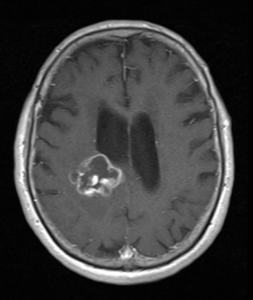
What if you could know, from a pre-operative MRI, whether a glioma was likely to have a genetic mutation that significantly alters prognosis?
Latest Clinical & Research News
Specialty: Neurology & Neurosurgery

What if you could know, from a pre-operative MRI, whether a glioma was likely to have a genetic mutation that significantly alters prognosis?
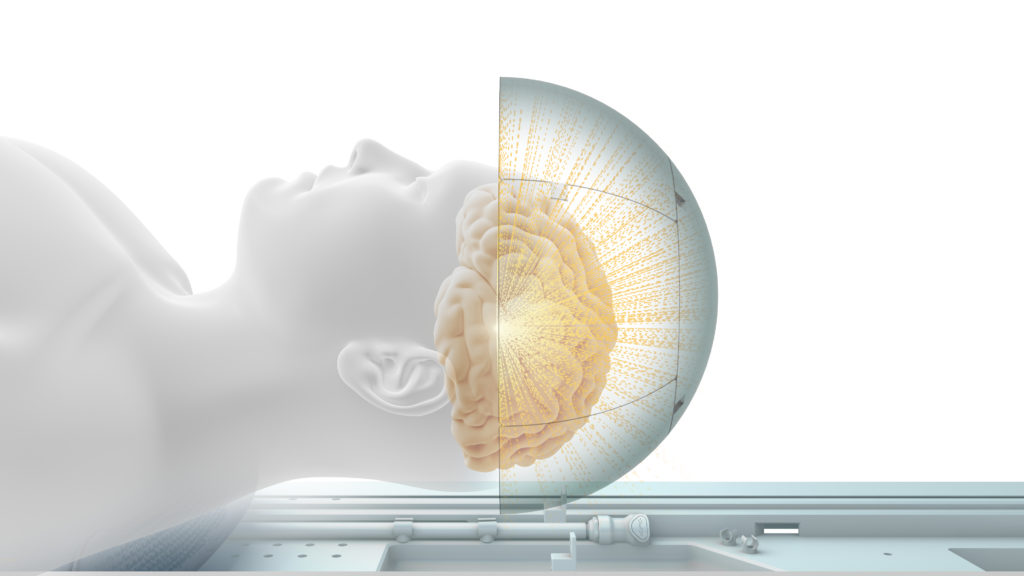
Image courtesy of INSIGHTEC
Each week, two or three patients with medically refractive essential tremor undergo MRI-Guided Focused Ultrasound (MRgFUS) Thalamotomy at Brigham and Women’s Hospital, with often-life-changing results – fulfilling the promise of a technology that dawned here 20 years ago.
 New research from Brigham and Women’s experts in women’s epilepsy provides guidance on whether and when effectiveness of antiepileptic drugs (AEDs) may be altered by the metabolic changes of pregnancy. The results suggest a need for therapeutic drug monitoring as soon as pregnancy is known.
New research from Brigham and Women’s experts in women’s epilepsy provides guidance on whether and when effectiveness of antiepileptic drugs (AEDs) may be altered by the metabolic changes of pregnancy. The results suggest a need for therapeutic drug monitoring as soon as pregnancy is known.
Read More

How do genetic variants disrupt brain cells and cause abnormal movements and memory loss? Can addressing these molecular glitches before disease advances lead to better outcomes?
The new Precision Neurology Program (PNP) at Brigham and Women’s Hospital (BWH) and Harvard Medical School addresses these key questions.
Researchers in the program, based in the BWH Department of Neurology, are drawing upon the full spectrum of basic research, clinical work, and discovery of targeted treatment for movement and memory disorders.

To speed innovation, a new NeuroTechnology Studio at Brigham and Women’s Hospital (BWH) now offers investigators access to advanced instrumentation, tools and expert support.
The goal of the NeuroTechnology Studio is to leverage advances in a range of technologies including microscopy, cell sorting and informatics to speed research and drive new understanding of brain function and of mechanisms underlying nervous system disorders. The Studio’s first two instruments for advanced imaging are installed and in use: a GE IN Cell Analyzer 2200 (a widefield high-content imaging system) and a Zeiss LSM880 + AiryScan confocal/super-resolution microscope.

Charles G. Jennings, PhD, has been appointed the executive director of the Ann Romney Center for Neurologic Diseases and the Program for Interdisciplinary Neuroscience at Brigham and Women’s Hospital (BWH).
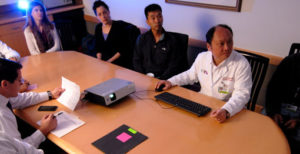
If your patient has been diagnosed with a spinal tumor, there are many treatment options, including surgery, radiation and chemotherapy. Determining the most appropriate treatment plan can be challenging, and often requires the collective opinion of multiple physicians across several specialties. Our team in the Spinal Tumor Program can assist in the care of your patients.
“The Spinal Tumor Program is a unique program that offers consultative services to physicians who are caring for patients with tumors of the spine. Our physicians work as a multidisciplinary team to create individualized treatment plans for each patient,” said John H. Chi, MD, director of neurosurgical spine cancer at the Brigham and Women’s Hospital.
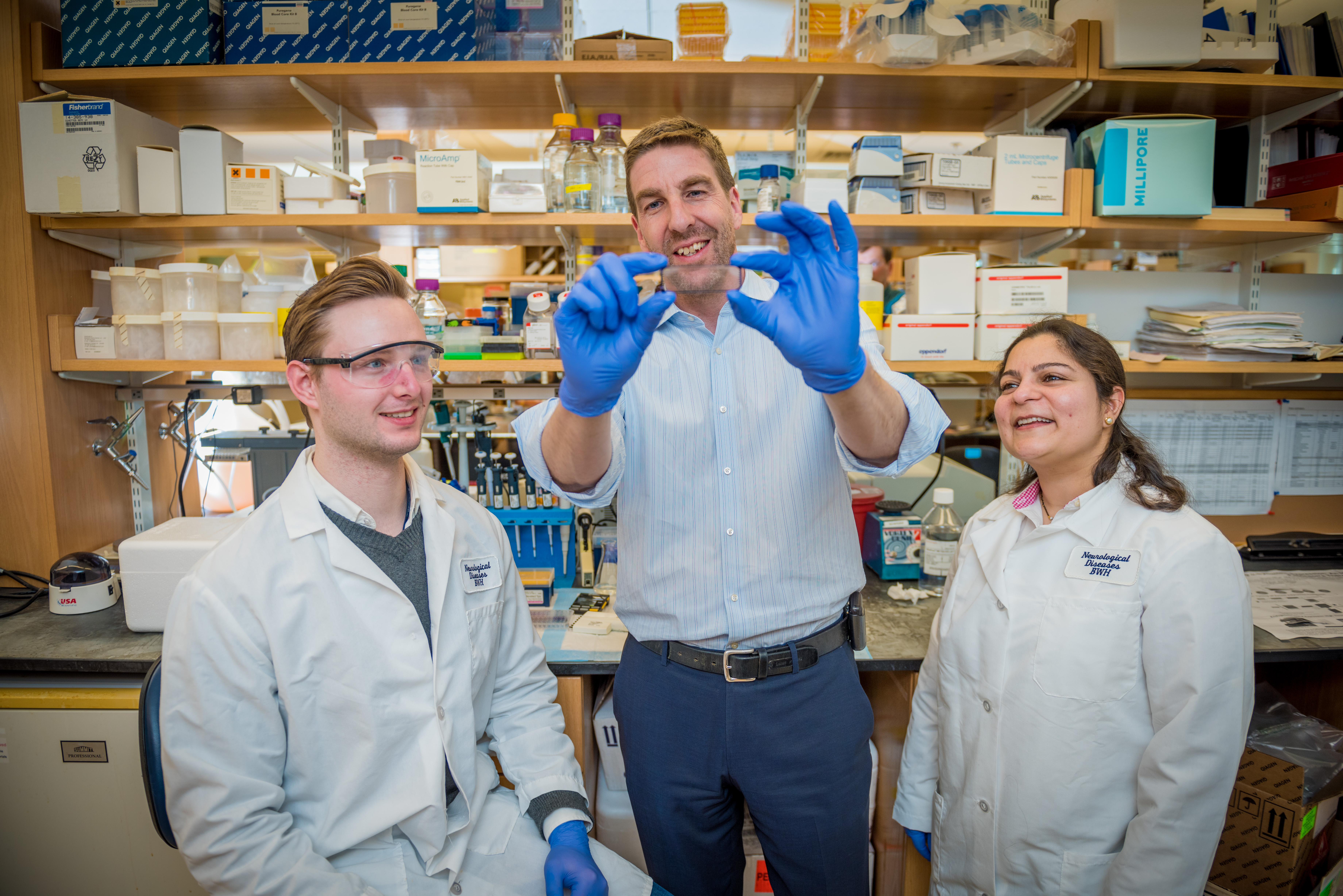 Recent research into preventing the Lewy bodies that are a hallmark of Parkinson’s disease raises the possibility of a new path for drug development: repurposing existing asthma drugs to turn down production of alpha-synuclein. Read More
Recent research into preventing the Lewy bodies that are a hallmark of Parkinson’s disease raises the possibility of a new path for drug development: repurposing existing asthma drugs to turn down production of alpha-synuclein. Read More

The Department of Neurosurgery at Brigham and Women’s Hospital (BWH) is involved in cutting-edge clinical trials using immunotherapies to treat glioblastoma. Read More
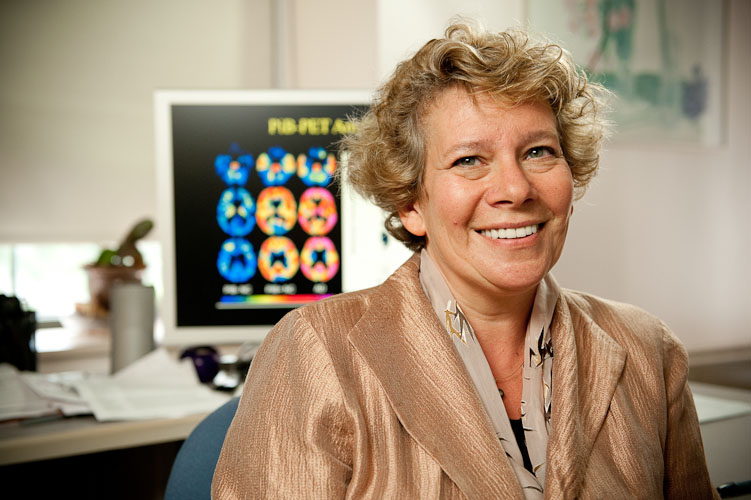
The National Institutes of Health (NIH) is expected to award up to $70 million over five years to three physician-scientists to launch the Alzheimer’s Clinical Trials Consortium (ACTC) – a network of 35 Alzheimer’s disease trial sites across the country – with the goal of finding new ways to treat or prevent Alzheimer’s. Read More